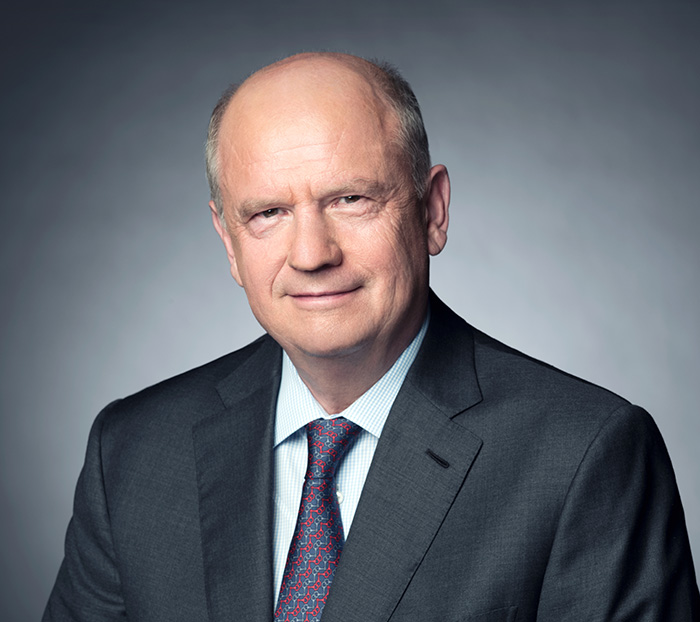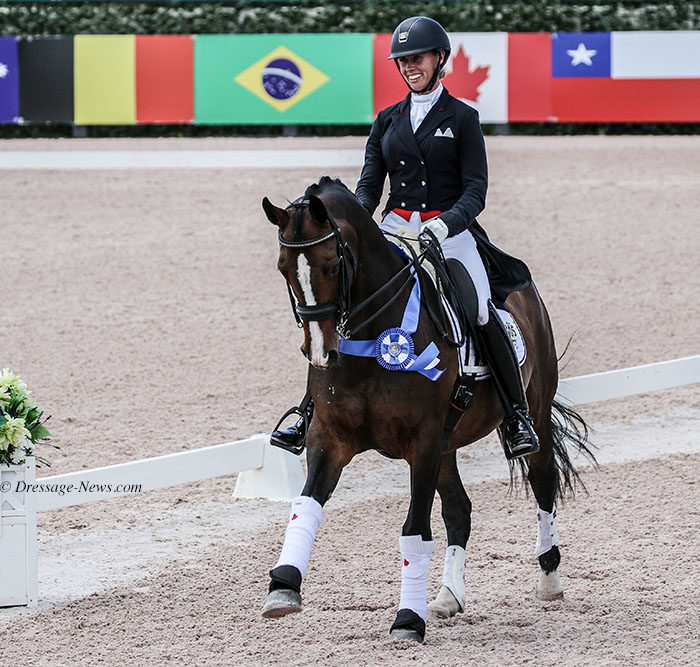German-American Martin Richenhagen to be Candidate for FEI Dressage Committee Chairman
5 years ago StraightArrow Comments Off on German-American Martin Richenhagen to be Candidate for FEI Dressage Committee Chairman

May 31, 2021
By KENNETH J. BRADDICK
Martin Richenhagen, a lifelong equestrian, supporter of horsesports in Germany, the United States and Scandinavia and a global businessman, is a candidate in the election to become head of the International Equestrian Federation (FEI) Dressage Committee.
Martin, 68, will be formally nominated by the German federation to succeed Frank Kemperman, event director of the premier World Equestrian Festival CHIO Aachen, Germany who has served two four-year terms as chair of the six-member dressage committee currently made up of all Europeans.
Martin has horse farms in Germany and the United States where he moved to the Atlanta suburb of Alpharetta as chairman, chief executive and president of AGCO Corp., the New York Stock Exchange-listed agricultural equipment company from which he retired five months ago.
He is reported to be one of three nominees for the post that also includes a seat on the FEI executive board. The others are:
—Maribel Alonso de Quinzaños, 64, of Mexico, an FEI 5* judge, member of the dressage committee 2013-2017 and vice chair of a FEI regional group, and
—Ulf Helgstrand, 70, president of the Danish Equestrian Federation and deputy chair of the European Equestrian Federation. As the father of Andreas Helgstrand, an active international dressage competitor who also operates a global horse sales business, questions as to conflicts of interest have been raised. Neither Maribel nor the Danish federation responded to requests for confirmation.
Martin avoided commenting on the other candidates and said he likes the democratic process of the election as it has not happened in the past. Frank Kemperman was appointed to chair a dressage task force following the 2008 Olympics and then was installed in his current post.
The dressage committee chairman will be voted by the 130-plus member nations at the FEI General Assembly in November.
“My vision is,” Martin said, “dressage is the art of keeping a horse happy, fit and healthy.”
Martin has been involved in several different aspects of equestrian sports for most of his life. He competed in eventing and dressage up to Small Tour; founded a riding club and staged events in Bonn when it was Germany’s capital; was a FEI steward and a 4* judge until retiring in 2018; chef d’equipe of the German dressage team including at the 2008 Olympics, and is editor of the German equestrian media operation, Reiter Revue International.
At AGCO, he signed sponsorship agreements under the Fendt name for German Olympic equestrian teams, under the Massey-Ferguson name of U.S. youth divisions and four-in-hand in Scandinavia under the Valtra brand, and personally supported dressage in the Atlanta area.
At the family farm in Germany, Hanoverian horses are bred and later shipped to Alpharetta for training and riding, but not for sale.
Martin describes himself as “very, very independent” with no financial interests in the horse business.
“I’m not a typical German any more,” he told dressage-news.com. “I’m not a typical American, yet. I have dual citizenship, an American passport since 2010. I lived and worked in France, in Switzerland, the Netherlands.
“I think I have a solid cultural awareness of various nations of the world. I think I have good communication skills that are needed in this position. I think I’m a good listener.
“What one wants to do is basically create a better alignment between the various stakeholders; the horses number one, riders, owners, organizers, the media, judges, trainers. I think very often you could have the impression they don’t talk to each other.”
He said he believed he could apply his skills in helping without seeking to actively influence people.
More emphasis on education to improve judging was needed, he said. The technology was available now for training and education without the cost of being required to go to in-person meetings.
Another area of interest is trying to organize scientific research by animal experts into what makes a horse feel happy; how can it be seen and what is needed to get there.
The idea was sparked by a study during his time at AGCO of the poultry industry. Chickens, the experts found, were happy in groups up to about 12–more than that and they became stressed. Although there is a lot of emphasis on so-called “free range” chickens, the study found that in large areas the birds tended to stay close to the coop to be able to quickly find shelter from predators.
He admits, a question is “would a German-American be accepted or is it just too much German in dressage,” and referred to the fact that fellow German Isabell Werth heads up the International Dressage Riders Club.
Although he no longer has any involvement in AGCO, he is on the boards of two other major corporations and is the chairman of the American Institute of German Studies, a Washington-based source of information for the media, academia and politicians on the German-American relationship.

